Is there a novelty to twins starting school?
- Published
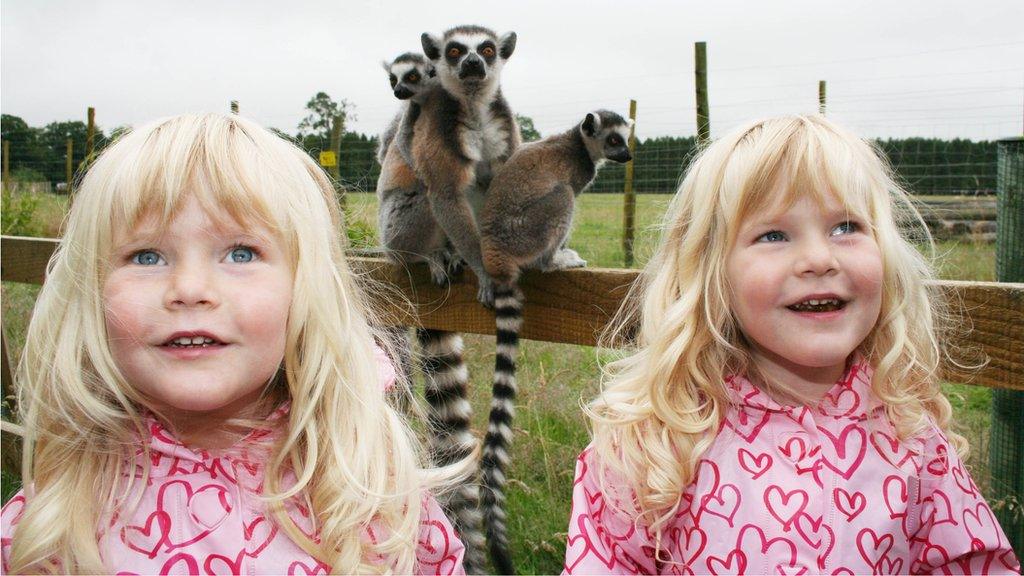
Mary (on the left) and Rosie when they were aged three at Blair DrummondSafari Park
When Rosie and Mary, now aged 13, started school it was the first time they realised other people were unable to tell them apart.
Before that their mum Helen Peck had never dressed her identical twins in exactly the same outfits.
When the local paper turned up to take photos of the new school entrants, it was Rosie and Mary who were picked out.
There is something about twins and the start of the new school year that seems to capture the imagination of the media, and this is not a recent phenomenon.
Allow X content?
This article contains content provided by X. We ask for your permission before anything is loaded, as they may be using cookies and other technologies. You may want to read X’s cookie policy, external and privacy policy, external before accepting. To view this content choose ‘accept and continue’.
Allow X content?
This article contains content provided by X. We ask for your permission before anything is loaded, as they may be using cookies and other technologies. You may want to read X’s cookie policy, external and privacy policy, external before accepting. To view this content choose ‘accept and continue’.
When identical twins Dennis and Mark started primary school back in 1972 they too were selected to appear in the local paper.
"That was my first recollection of our photograph being in the paper because of us being twins," Dennis recalls.
The number of identical (monozygotic) twins has actually remained fairly constant across time.
So teachers are no more likely to "see double" in their classroom today than they were 45 years ago.
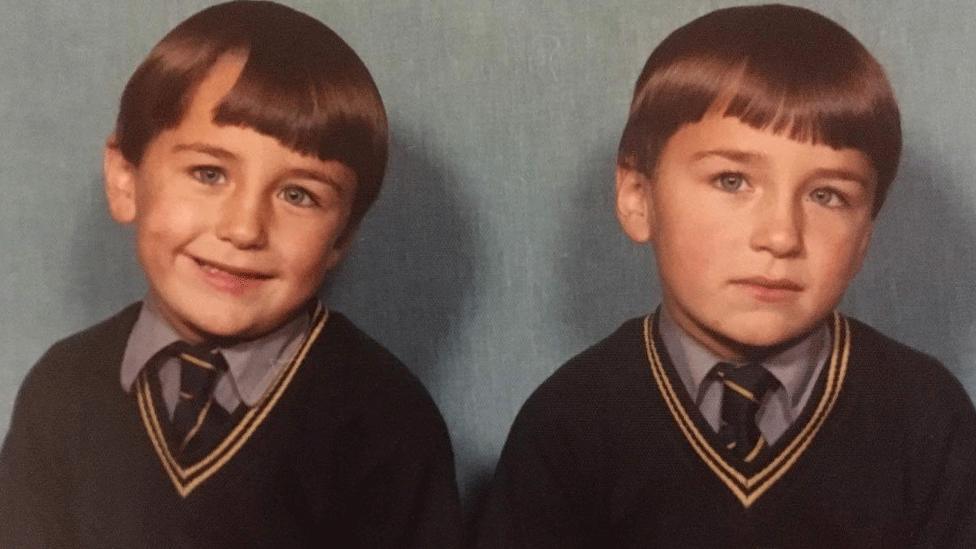
Dennis and Mark Forsyth were at school together and have gone into business together
In the UK, about one in every 250 maternities result in the birth of identical twins.
However, classrooms do have a much greater number of non-identical twins than when Dennis and Mark started school.
The number of non-identical (dizygotic) twins increased dramatically in the 80s and 90s in UK.
During this time the number of maternities resulting in multiple births (ie twins, triplets or more) in Scotland rose from 1.04% in 1985 to a rate of 1.42% in 1995.
England and Wales saw a similar rise in the rate of multiple births - 1.01% to 1.41% between 1984 and 1995.
Non-identical twins account for two-thirds of all the twins born in the UK.
This has been attributed to more older women having children, and also an increase in fertility treatment.
Yet this rate of twins is not significantly higher than at previous peaks in the 1920s and 1950s.

It's a twin thing
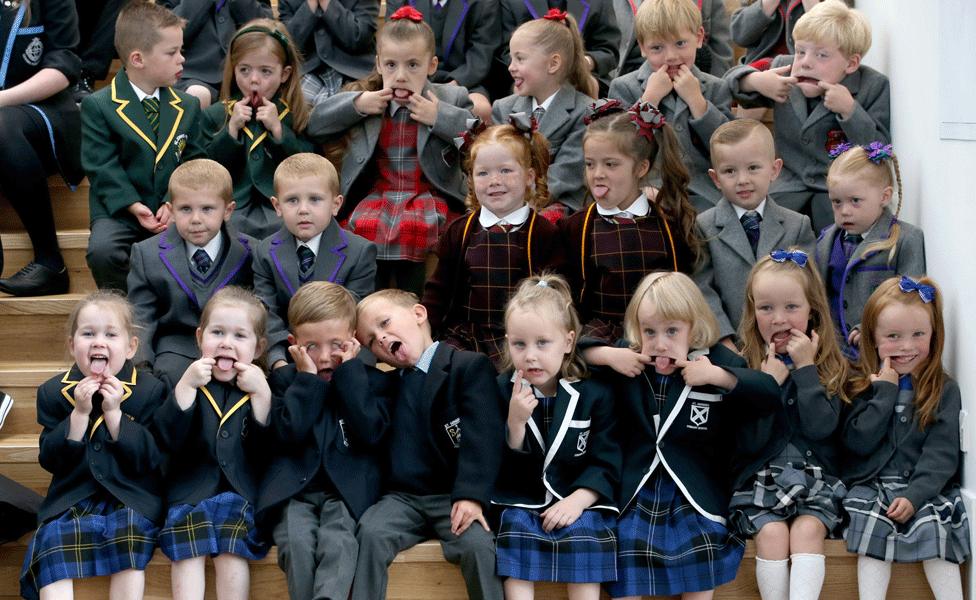
Inverclyde Council gathered together all the sets of twins starting school this year
Some twins are mirror images of each other - for example one may be right handed and the other left-handed
The Yoruba tribe of Nigeria has the highest twinning rate in the world - three sets of twins in every 19 births
China has one of the lowest with multiple births occurring in one in 300 births
The average time between the delivery of the first and second twin is 17 minutes
Scientists believe twin conceptions greatly outnumber twin births, with some saying that as many as one in eight births began with twins

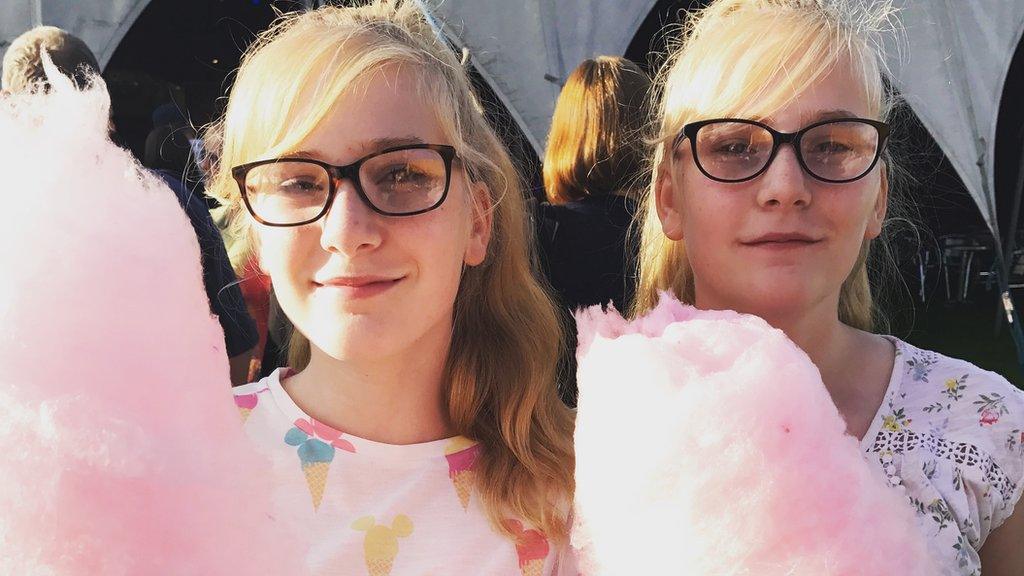
Rosie (left) and Mary are now 13
Data for England and Wales, available from 1938, shows the rate of multiple births was between 1.2% and 1.3% until the mid 1950s when there was a sharp decline.
GRO(S) data suggests the rate of twins in Scotland reached 1.39% between 1916-20, and again from 1946-50 and 1951-55.
So although there has been an upward trend since the 1980s, certainly in Scotland, there has not been an unusually high number of twins born in recent decades.
In England and Wales, there has been a slow increase in the number of multiple births since 1995, rising from 1.41% to a peak of 1.62% in 2009. Since then the rate has plateaued and in 2015 it sat at 1.61%.
Records by the National Record of Statistics suggest that since 1995 the rate in Scotland has fluctuated between a low of 1.37% in 1999 and a high of 1.62% in 2008, and sat at 1.51% in 2016.
This means there has been no significant change in the number of twins enrolling in Scottish primary schools for almost 20 years, and in England the increase has been relatively small during this time period.
'Are you psychic?'
Yet our nation's fascination with twins in their new school uniform seems set to continue.
Rosie and Mary's mum Helen, who is now Scottish coordinator for Tamba (Twins and Multiple Births Association), says: "Rosie quite liked the attention to begin with, but Mary found it overwhelming.
"I remember her coming home from school and saying 'mum do you ever have one of those days when you want to strip yourself out of your body and shout? I just wish people would leave me alone.'"
"They do get asked ridiculous questions.
"'Are you psychic', 'can you feel when the other is in a bad mood' and even 'do you ever get confused as to who you are?"
Double trouble
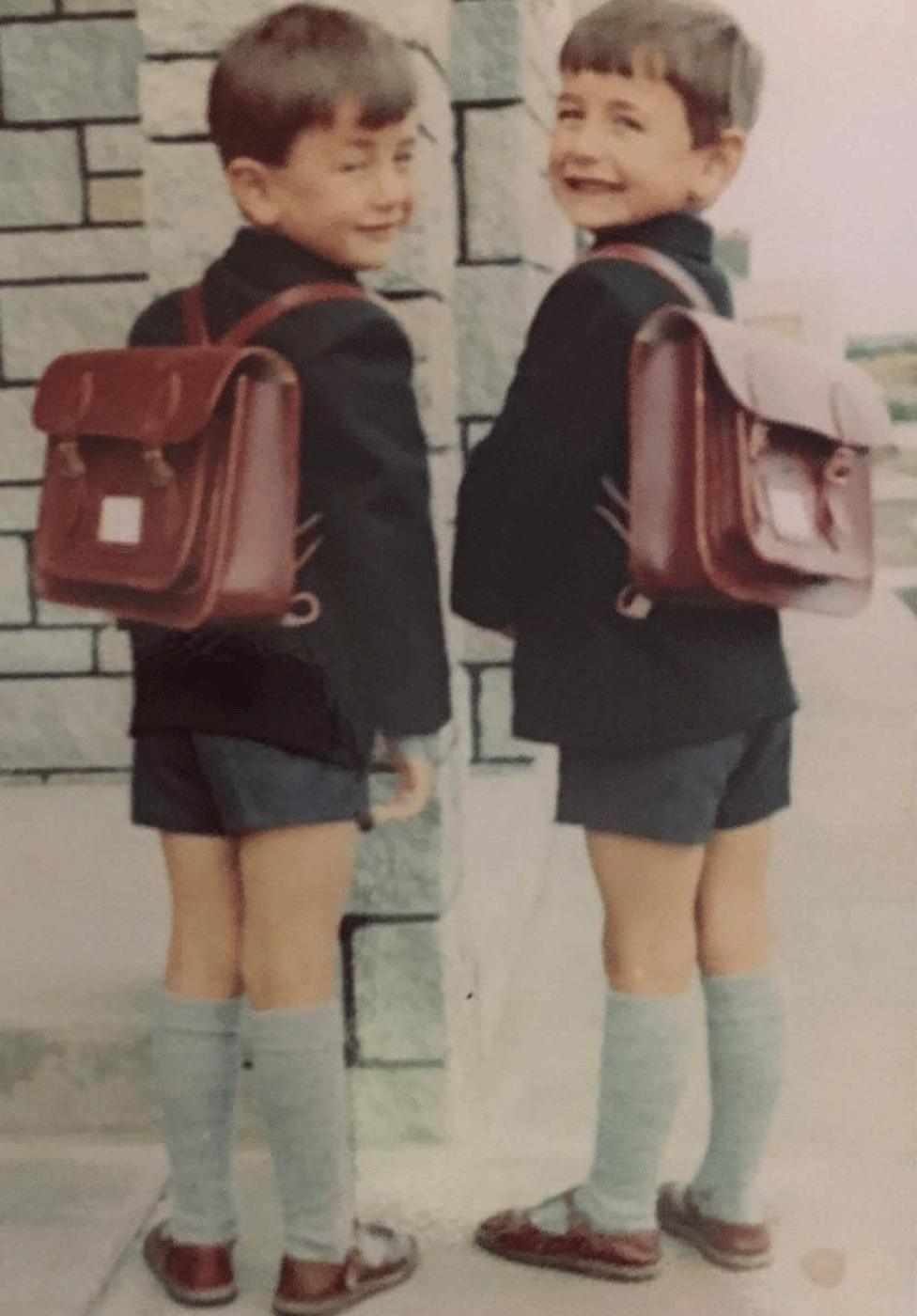
It's August 1972 and Dennis (left) and Mark Forsyth start their school life together
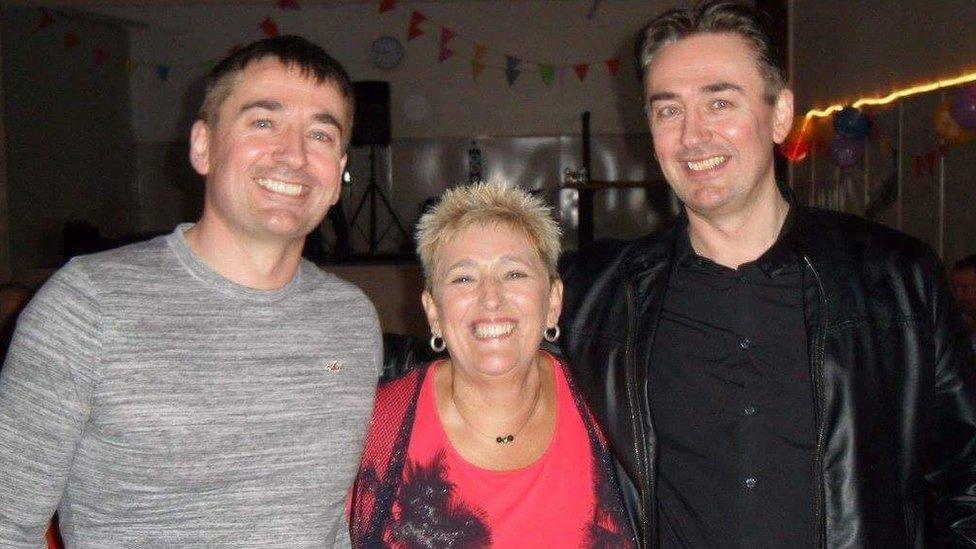
Dennis (left) and Mark Forsyth with their aunt Maureen
Dennis recalls the clichéd labels "terrible twins" and "double trouble".
He says: "With all the attention we played up quite a bit.
"It was just high jinks. It left the teacher with the choice of penalising both of us or neither of us.
"It was a card that was easily played."
Helen's children and Dennis and Mark both shared a classroom with their sibling.
Dennis, who now owns and runs pubs in Fraserburgh with his brother Mark, recalls being split up in the later years of primary school.
"We did well at school but with us being twins we did act up a bit," he says.
Helen says: "It can be more challenging when twins start school.
"You have to think whether it is best for them to be in the same class or separated classes.
"It has to be judged on an individual basis.
"It's about recognising the relationship that a set of twins may have and how that may affect them."

You may also like:

While these parents may have more to think about when their children start school, there is more information available than in the past.
Organisations like Tamba provide guidance, external on the additional issues faced by parents of multiples.
There is no doubt times have changed and Scottish non-identical twins Angela Russell Taylor and Jacqueline Hall, aged 57, know that better than most.
You might want to spare a thought for their parents, as Angela explains: "Back in the day my poor mother didn't even know she was expecting twins.
"My mother had to go into hospital to lie for a week before we were born and she was transferred to Aberdeen [from Fraserburgh] on a Friday.
"My father was working and and when he turned up on the bus on the Sunday he had two babies.
"He had no idea. He must have got an awful shock."